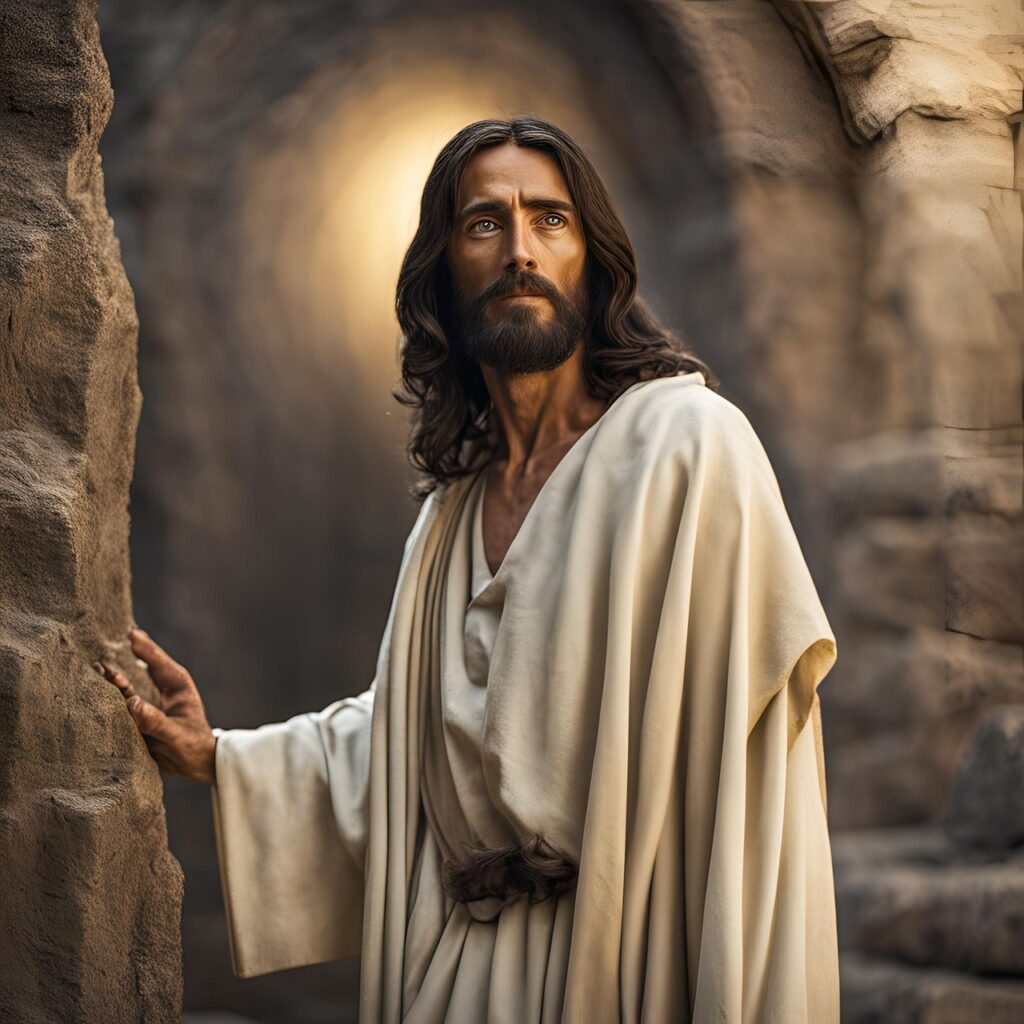The Ways of the Baptist: Reflection by Monsignor Enrique Díaz
Third Sunday of Advent

Monsignor Enrique Díaz Díaz shares with Exaudi readers his reflection on the Gospel of this Sunday, December 15, 2024, entitled: “The Ways of the Baptist”
***
Zephaniah 3, 14-18: “The Lord will rejoice in you”
Psalm 12: “The Lord is my God and savior”
Philippians 4, 4-7: “Rejoice in the Lord always”
St. Luke 3, 10-18: “What should we do?”
Mexico has appeared internationally with the less than honorable first places in insecurity and corruption. At the level of our people, the most varied comments arise, from those who ironically say that we had to stand out in something, to those who angrily rant against authorities, institutions and people. “Everything is corrupt” someone said, and it is not far from the truth. “The problem is not knowing that we are all involved in corruption, the problem is knowing what we have to do to get out of this hole.” A group of women begins to discuss: “The authorities should do something, that is why we put them there…”, one affirms. “The first thing we should change is education,” says another. “The Church has neglected values. It has lost its place,” answers a third. “We have neglected education in the family,” ends another voice. How good that we are finally concerned about corruption, even if we do not know what to do!
As if he had heard our fears and discussions, John the Baptist comes to us with his proposals to overcome the critical state not only of our country but of each person. Eight days ago we heard him announcing the nearness of the Kingdom and proclaiming conversion. He took up the words of the prophet Isaiah with symbolic messages, asking us to straighten the path and make it straight so that we can see the salvation of God. Up to that point everyone was and is in agreement, the problem is when he begins to descend into very concrete actions. It all started because a group of people came to ask for baptism, and he told them off: “You brood of vipers, bear the fruits of conversion and do not boast that you are children of Abraham.” But this, far from discouraging his other listeners, dared to ask him before receiving baptism: “What should we do?” A brave question and a willing heart that shows a true interest in changing and straightening the paths. John the Baptist, taking up the same messages that the prophets had proclaimed, begins to teach us what truly needs to change not only to avoid corruption, but to accept this kingdom that is already approaching.
The first thing is to keep our brothers in mind: “Whoever has two tunics, let him give one to the one who has none, and whoever has food, let him do the same.” Thank God, in this Christmas season, feelings of sharing and looking at the helpless brother still arise. But the Baptist goes much further. It is not a matter of simply giving what we have left over or attending an exchange of gifts. Not even bringing a small gift or a pantry to calm our conscience. It is about going to the root of injustice and corruption. Why have we reached these extreme situations? Because greed has taken over our hearts, because many people and interests dance to the rhythm of money, because we have betrayed and abandoned God. When we betray the poor, when we let migrants die of hunger, when we turn our back on the widow, when we do not care for our brother, we betray God. John’s proposal is radical. He does not tell us to offer a little, he tells us to share what is ours with our brother. It is about returning to our origins. We were both born from God, we are brothers and we have the same rights.
Secondly, he proposes true justice: “Do not charge more than what is established.” The prophets had already spoken out strongly against merchants and tax collectors. Trade and tax collection are not condemned, but the desire to enrich oneself at the expense of the poor, trafficking in their freedom, selling them even the worst products and robbing them of their dignity is condemned. Taxes should never weigh on those who have the least to support the luxuries and advances of a few. Saint John gathers together an entire tradition of prophecy and speaks clearly about how the path of the Messiah must be prepared. Disrupting the structures that pass off treaties as fair and markets that forget people and individuals, and subject them to a regime very close to slavery. Inequality is the most important challenge facing the country. Poverty continues to be the main problem that affects the majority of Mexicans. It is not that there is no money or resources, it is that they are poorly distributed, and more value has been given to capital than to people. There is a fear of risking one’s values and money, but there is no fear of putting the health, education and life of the poorest at serious risk. On a personal level, but also on an institutional level, the Baptist has a word for us today too.
Thirdly, he proposes the righteousness of the law: “Do not extort anyone, nor denounce anyone falsely, unless you are content with your wages.” Once again, John echoes the prophets. The goods and even the lives of many people depend on the administration of justice. But the prophets condemn the way in which it works. There is often a denunciation of bribery, which leads to the acquittal of the guilty and the condemnation of the innocent. Greed leads to perjury, to a lack of interest in the causes of the poor, and even to exploiting them with the law in hand. The prophets denounce the manipulation of the law that leads to the exclusion of the weak from the legal community, to the deprivation of the poor of their just claim, to the enslavement of the ignorant and widows, and to the appropriation of the property of the orphan. We would have to change very few words to make the words of the prophets current, and today the Baptist invites us too to change and to discover what is in our hearts.
The answers to his listeners are answers that each one of us must listen to, assume, and apply. They are very concrete indicators of our conversion and our approach to the Lord. They are the true way of preparing the way of the Lord: to return to fraternity, to seek truth and justice, to build a world of peace. How can we make our own the paths that the Baptist proposes?
Look, Lord, at your people, who await with faith the feast of the birth of your Son, and grant them to celebrate the great mystery of our salvation with a new heart and immense joy. Amen
Related

After Eight Days Jesus Arrived: Commentary by Fr. Jorge Miró
Jorge Miró
26 April, 2025
3 min

The Perspectivas del Trabajo Foundation is founded with the aim of promoting virtues for professional development
Exaudi Staff
25 April, 2025
2 min

Reflection by Bishop Enrique Díaz: Alleluia, alleluia
Enrique Díaz
20 April, 2025
5 min

Christ is Risen! Alleluia! Commentary by Fr. Jorge Miró
Jorge Miró
20 April, 2025
3 min
 (EN)
(EN)
 (ES)
(ES)
 (IT)
(IT)

